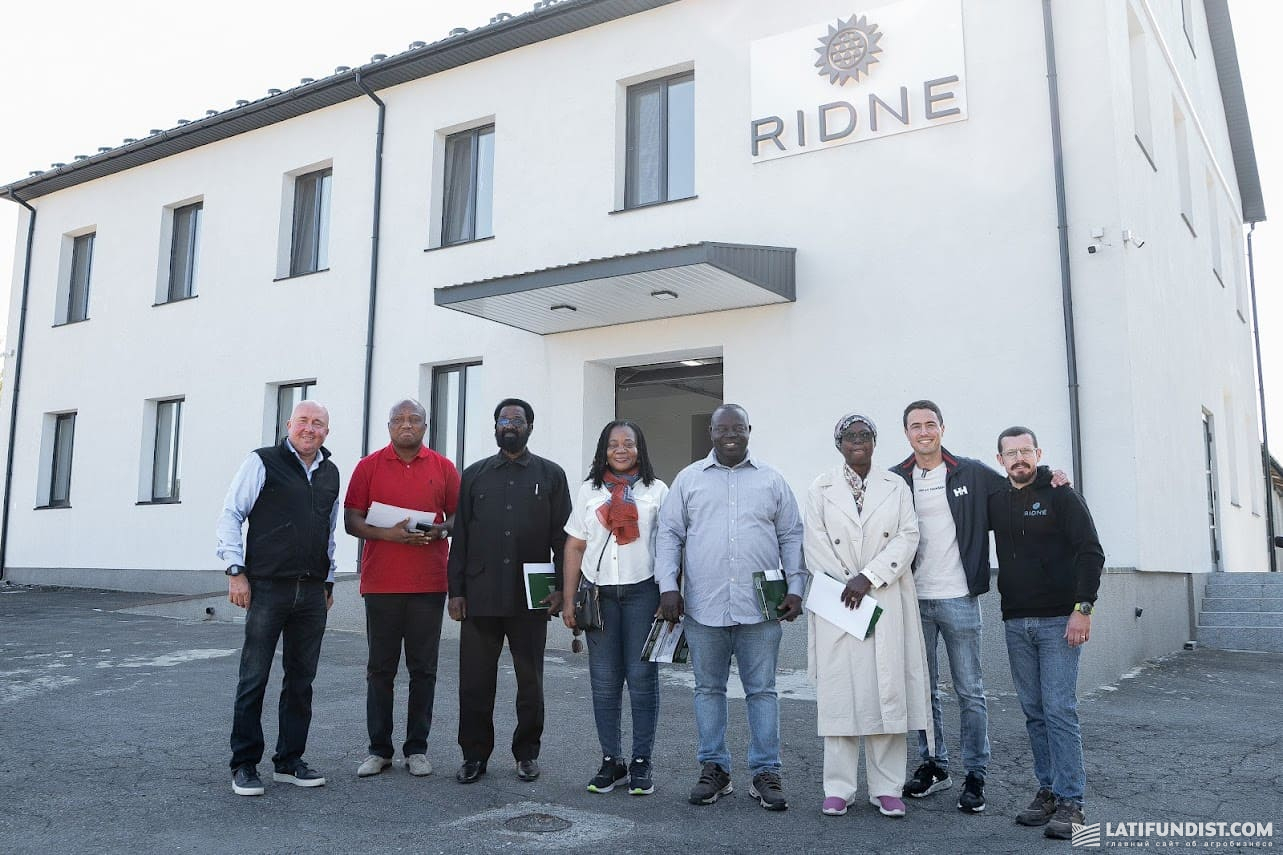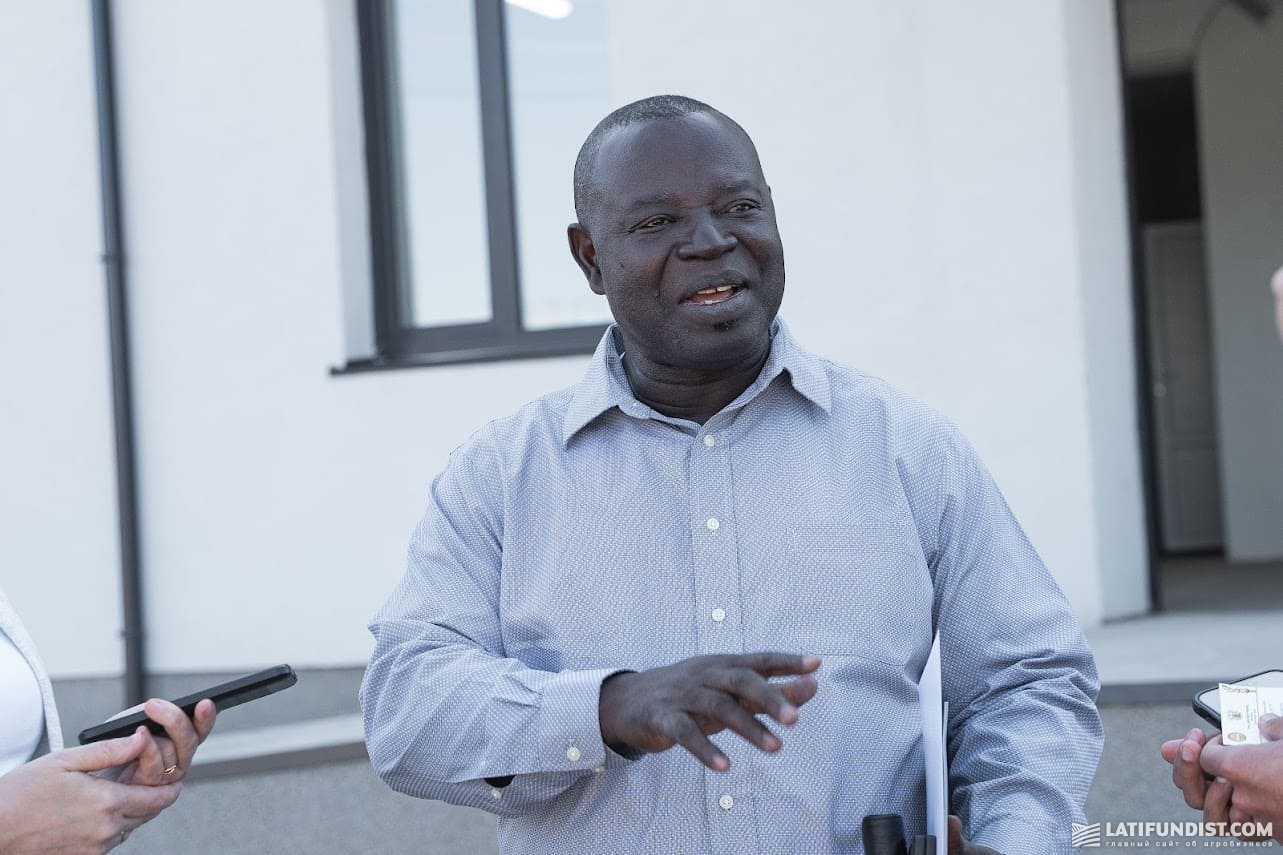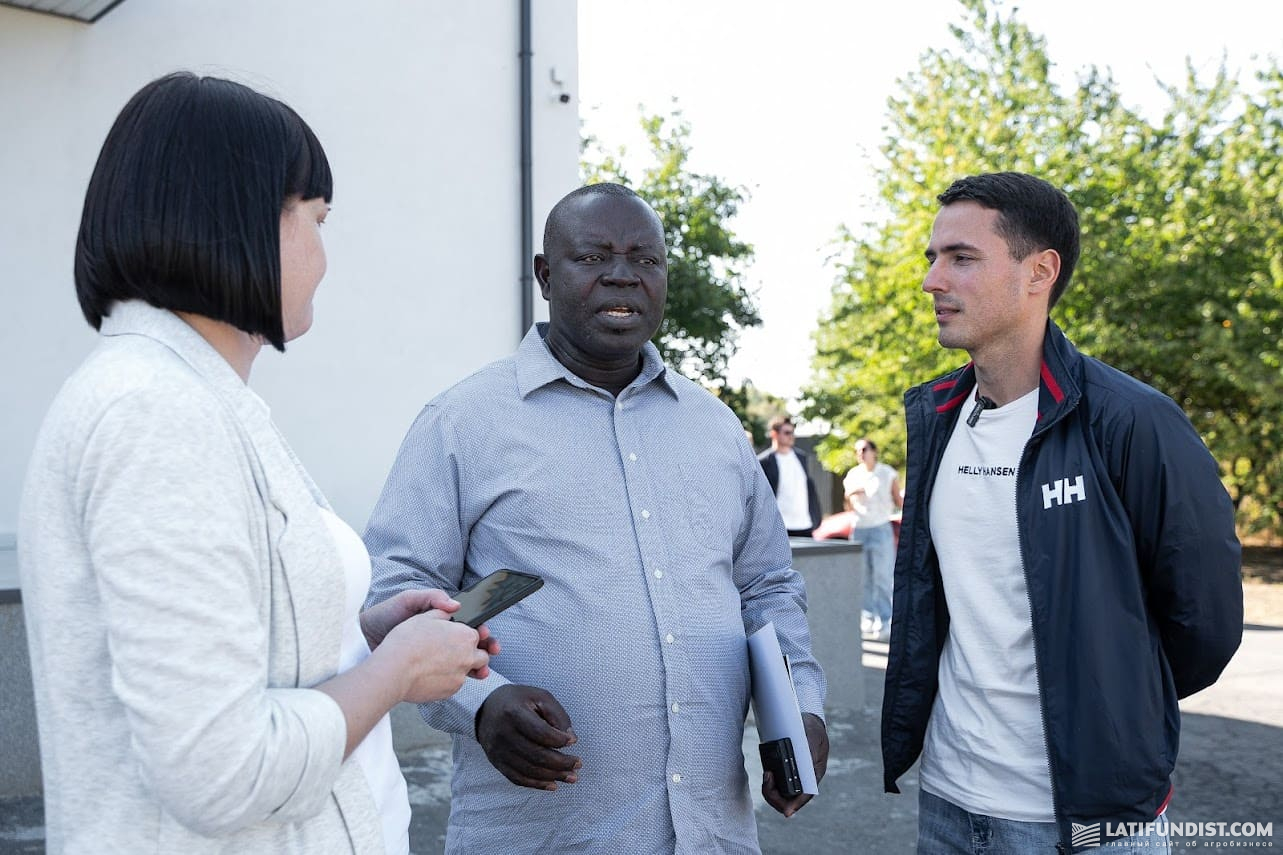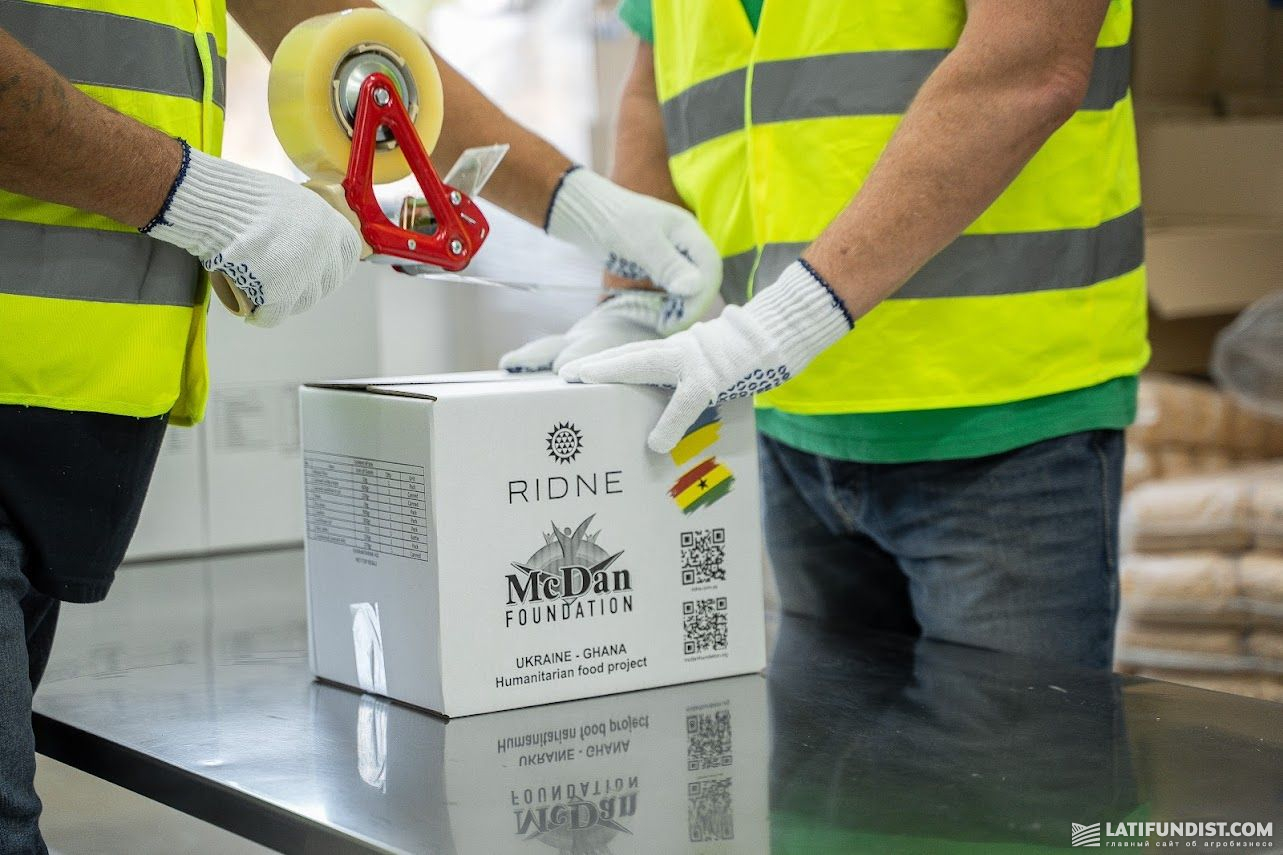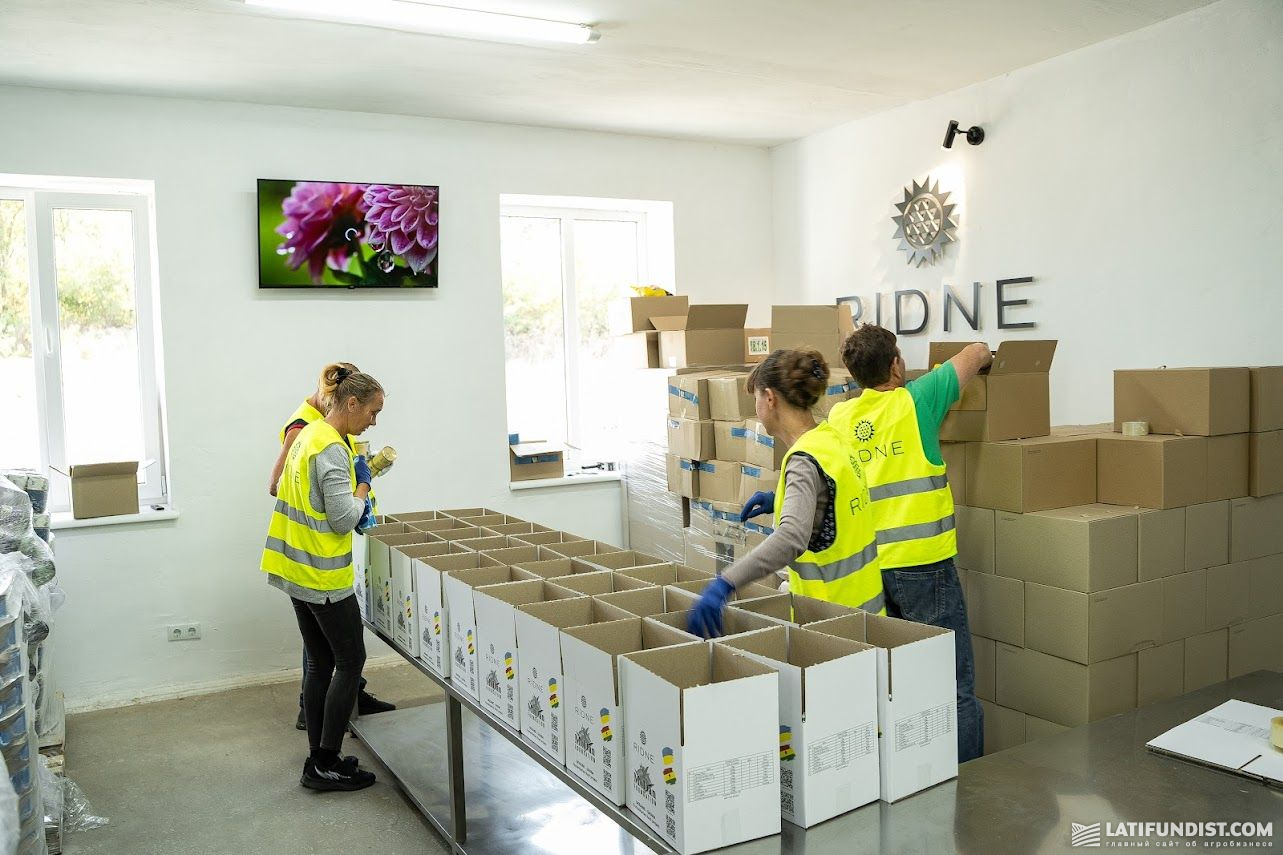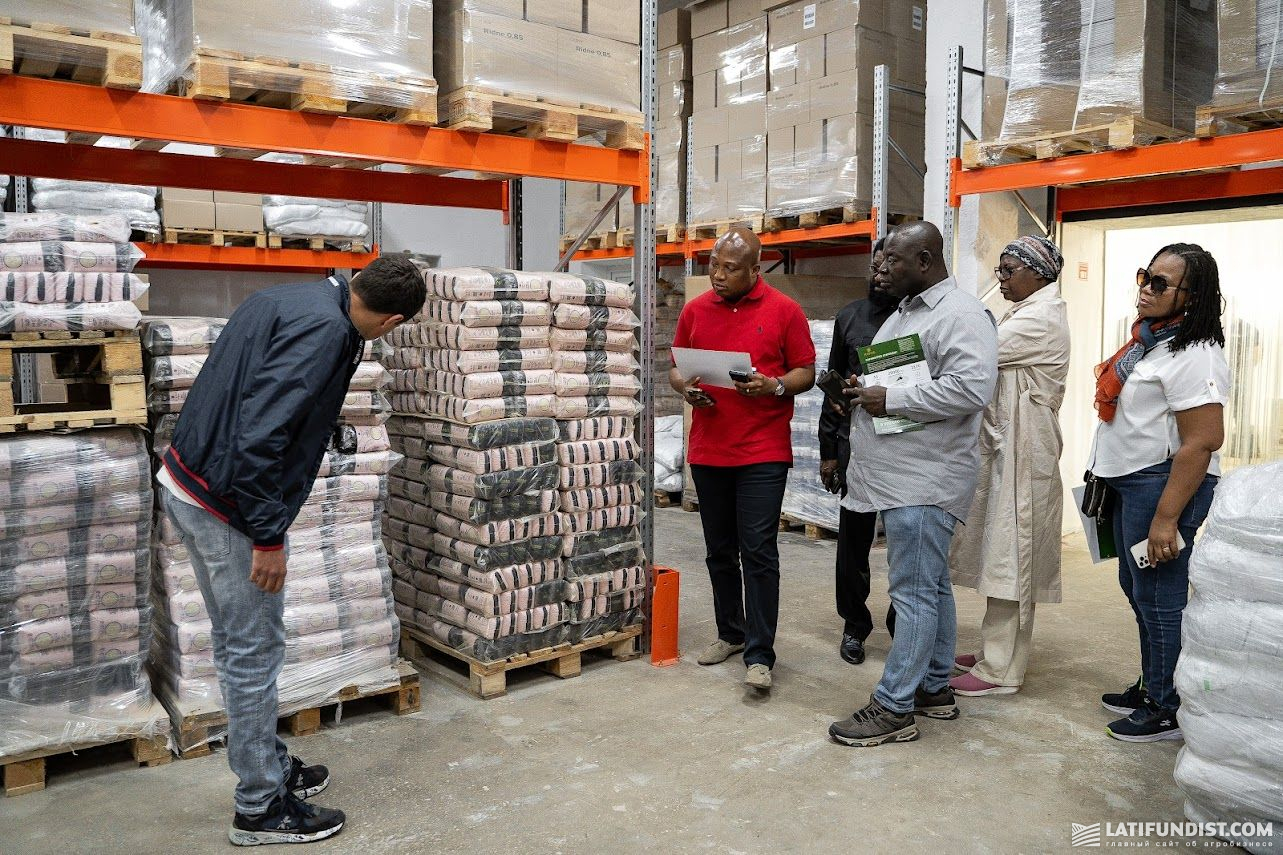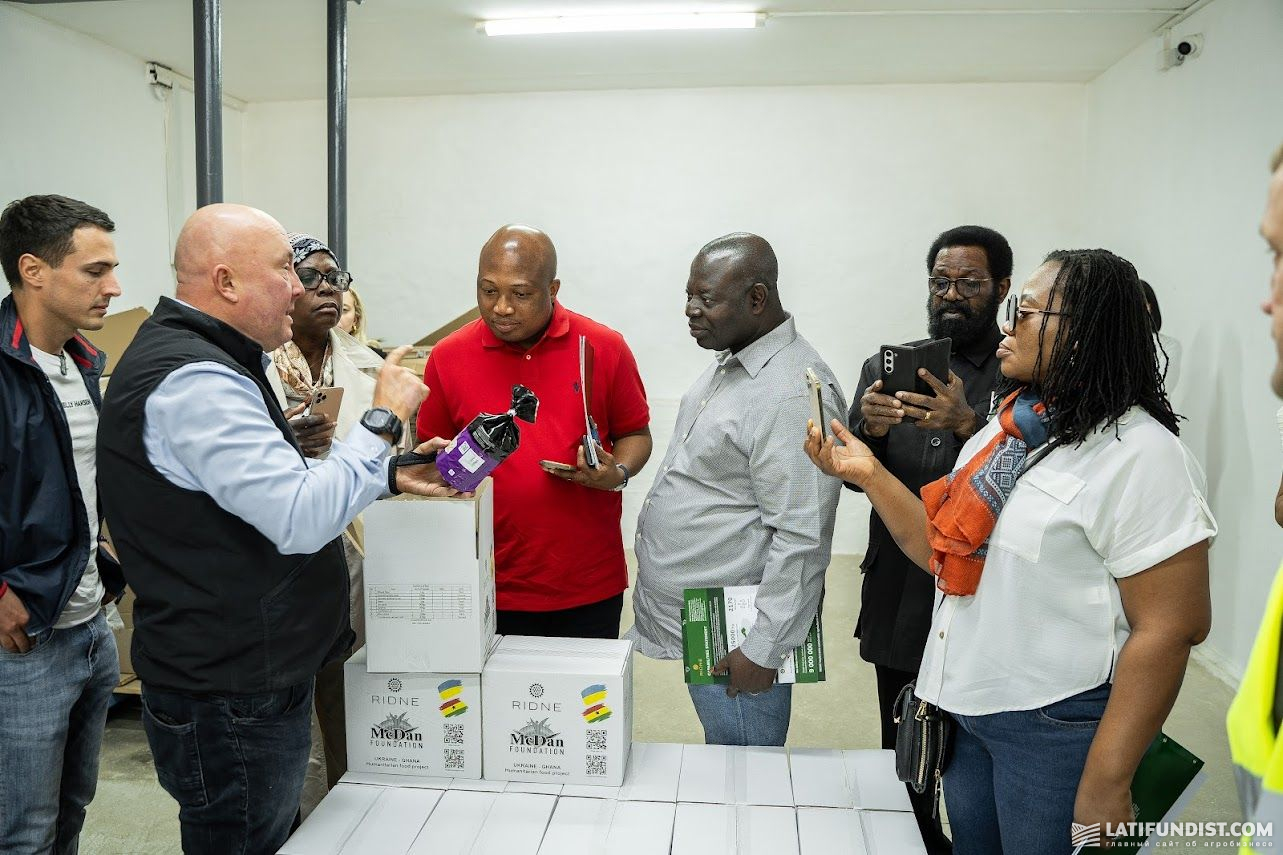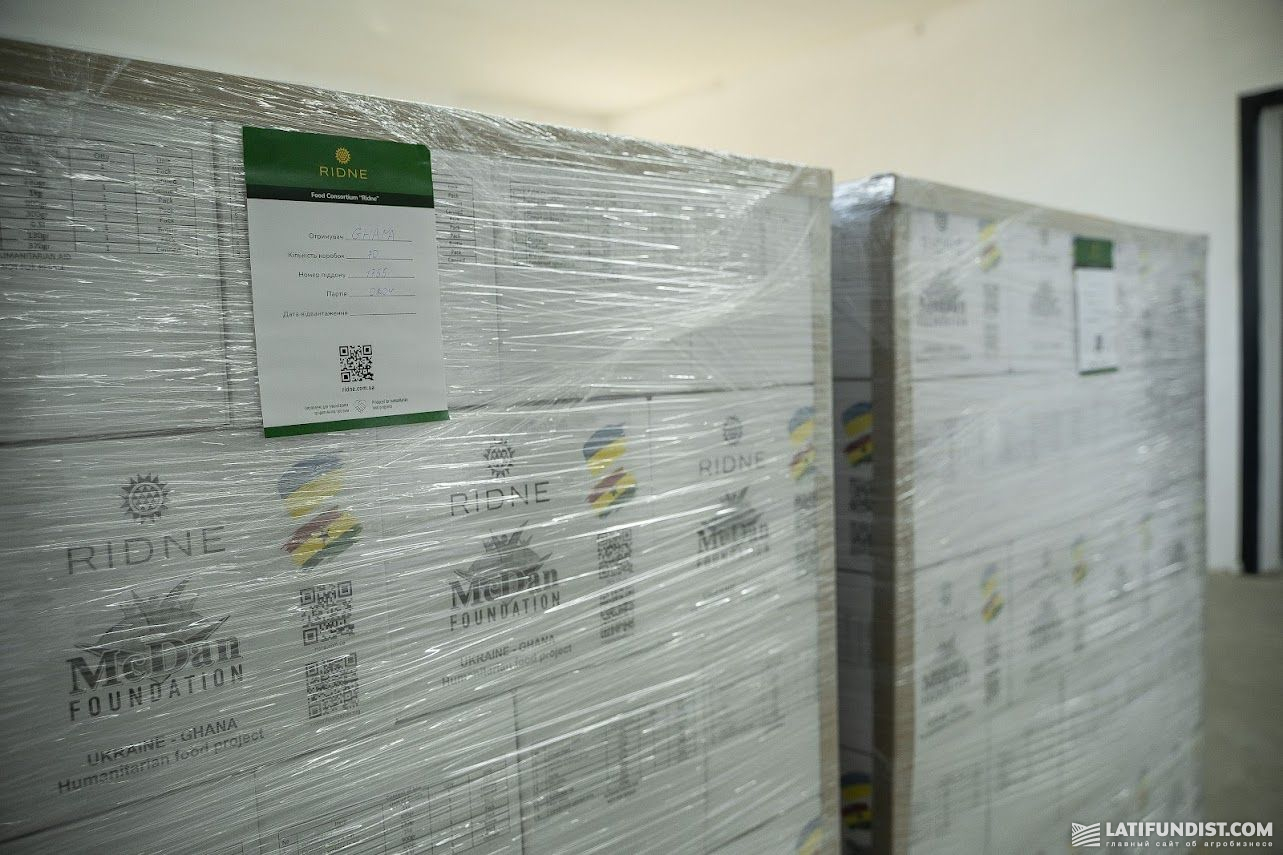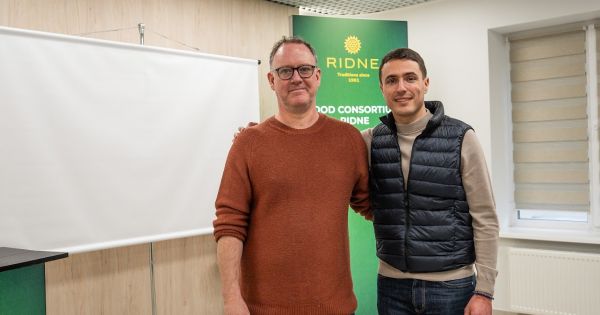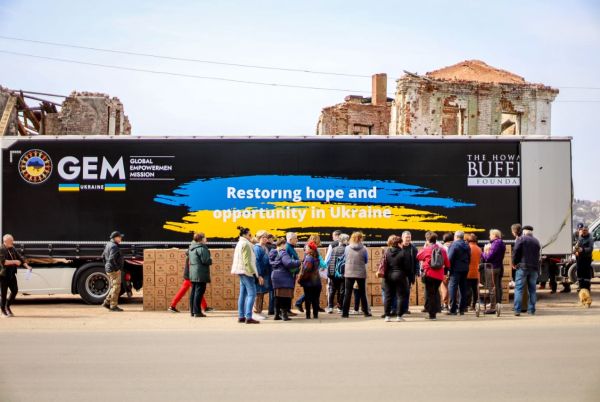Ukrainian Canned Food, Pasta and Sugar for Ghana. What Markets Can Our Agricultural Products Compete for in this Country? Interview with the Chairman of the Agricultural Committee of Ghana

Photo by: Latifundist.com
It is not new that russia is trying to extend its impact on African countries, however, it is not equally successful in every part of the African continent. One of the countries that is friendly to Ukraine is the Republic of Ghana, and we are currently developing economic and trade cooperation with it.
Recently, a delegation of parliamentarians from Ghana visited Ukraine (for the first time since our independence). We met them in Cherkasy region at the hub of the Ridne Consortium, an organisation that supplies products for humanitarian missions and is the largest partner of the Howard G. Buffett Foundation in Ukraine — GEM. On the day of the foreign guests' arrival, they were just finishing packing the first batch of food parcels to be sent to Ghana.
Some six months ago, representatives of Ridne visited Ghana to present a project to supply Ukrainian products for food missions in the country. They found a partner, a local charity, to work with in preparing food parcels. The cooperation goes like this: packages with canned vegetables and meat, vegetable oil, sugar, pasta, peas, condensed milk, etc. are sent from Ukraine. And in Ghana, the charity foundation supplements them with locally produced products such as cocoa, corn grits, peanuts, cashews, etc.
This was our opportunity to ask John Frimpong Osei, Chairman of the Food, Agriculture and Cocoa Affairs Committee of the Republic of Ghana, about the country's agricultural sector, its dependence on imports, the impact of the war in Ukraine, and how cooperation with our country would help its growth.
How Ghana encourages farmers to grow more agricultural products
John Frimpong Osei: Ghana is an agricultural country. About 60% of the population is employed in this sector. But it is mostly subsistence agriculture. That is, we produce food to feed ourselves, not to sell. And these products are not enough, so we are heavily dependent on imports.
We do have government programmes aimed at cultivating large areas of grain and vegetables. The policy is to encourage the sowing of various crops for the sake of food security and job creation. We are currently in the second phase for which we have selected 11 products: rice, cereals, soya beans, sorghum, and vegetables (peppers, tomatoes, etc.). These are the products we need to provide ourselves with besides some poultry products.
The new government policy helps farmers to cultivate at least 10 acres of land (apx. 4 hectares – ed.). If they have such a plot, they can count on fertilisers from the state. It turns out that to support our farmers, we have to import a lot of fertilisers. The russia-Ukraine war has hit us as it has increased the cost of fertilisers. This in turn affects the cost of production. You can't produce fertilizers in large volumes, and supply and demand drive up prices. That's why I keep saying that this year we have a deficit, and it will take a lot of imports to cover it. The government is now looking for additional funds for imports and ways to compensate for losses to farmers affected by the drought.
Irrigation systems in Ghana and the impact of climate change on farming
John Frimpong Osei: We are weather-dependent. There are not enough irrigation systems in the country. Many farmers face challenges because of this. This year, for example, the drought lasted three months. This affected the food basket, especially cereals. So we are even thinking of importing products that we traditionally grow domestically.
Clearly, we must develop irrigation. We have fertile land. Unfortunately, some areas are in the forest — these areas cannot be cultivated. But in the savannah zone, there is a lot of fertile land where we can grow various crops. But because of problems with irrigation, we can't cultivate much of the land. This is our challenge.
We need technology exchange. We need agricultural machinery that would allow farmers to cultivate large areas. This is something that my government is now trying to encourage. And this is where Ukraine's experience and partnership could be useful to us.
On the poultry industry and what's holding it back
John Frimpong Osei: The poultry industry is not as efficient as we would like it to be, because of the high cost of feed. This applies to the livestock industry as well. That is why, along with cereals, we intend to import a lot of dairy products and chicken. And in this area, we would also like to encourage Ukraine to partner with us.
We need to find a way to cut the cost of feed. We are putting some effort into this, but it is not enough.
We would like to process soya into meal. For now, we export soybeans. So, if we can create a mechanism that supports the feed industry, it will boost the poultry industry in Ghana. We need a comprehensive approach to the problem.
I recently visited Czechia, where we were taken to a factory manufacturing feed for all kinds of animals, including horses. And they told us about the start of their project in Zambia to produce feed. So we can also do this with you, they said. I want us to approach humanitarian work holistically. You feed our animals, we feed our people.
On processing in the country
John Frimpong Osei: We would really benefit from support in developing agricultural processing. We process cocoa and nuts, but we export a lot of raw materials. The main cash crops in Ghana are coconut, mango, oil palm, cashew, chard, etc. But we do not process them. So processing is something that would help us a lot.
We have the land for growing grain. All we need is fertiliser. Equipment for commercial farms. Let's work on this together. I am the chairman of the agriculture committee and I am well aware of how much we can do together, where we are now.
| For context: In Ghana, processing is primarily focused on the production of maize grits and flour, cocoa and nuts. A Ghana foundation Ridne is working with is considering opening a chicken processing facility Ukraine, which would be supervised by Ukrainian experts. |
Impressions from Ukraine
John Frimpong Osei: It's my first time in Ukraine and I'm delighted with how friendly Ukrainians are. We have met a lot of great people along the way. We visited the parliament, the Ministry of Foreign Affairs, the Ministry of Defence. We visited representatives of the Crimean Tatar people. We visited the territory where demining is underway. We are convinced that the country has great potential.
Your contribution to maintaining global food security is enormous. You must continue to produce agricultural products and feed the world. I was happy to hear how you were able to resume grain exports from the Black Sea. If the situation in the country worsens, it will affect everyone. African economies are already suffering because of this war.
Impressions from Ridne
John Frimpong Osei: I am thrilled with what I have seen here today. I believe in this project and in Ukraine-Ghana cooperation.
Serhiy Kovalchuk, the Commercial Director of the Ridne Consortium: This cooperation opens up further opportunities for Ghana. In particular, the production of foodstuffs for humanitarian missions could be set up in Ghana, for example, for Zambia or Angola.
Flooding the market in Ghana with grain only is not a success story for us as there is a lot of competition from multinational companies. Entering the retail market? This market is dominated by Lebanon, Egypt, Turkey, etc., and it is hard to break through. But supplying products for humanitarian missions is a viable project. It means stable payment and the certainty that you will not be misled. We are sending two containers with 3,400 food parcels to Ghana.
Natalia Rodak, Latifundist.com

